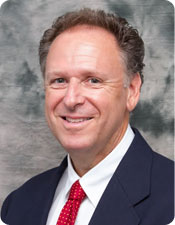November 14, 2024
Mark Nortz is the senior instructor of Winthrop’s Department of Mass Communication and is currently enjoying his last semester at the college. After 20 years of instruction, Nortz is retiring at the end of the fall semester.
Nortz recognized his calling at a young age. Throughout high school, he worked in the audiovisual room and was noticed by the school’s basketball coach. The coach offered him a job announcing basketball games, and the football coach soon followed.
Jobs like these led to Herkimer County Community College, where Nortz majored in radio and television broadcasting. Despite his focus on radio, he realized the airways weren’t for him after an unsatisfactory internship. Instead, Nortz fell in love with broadcasting, as his class’ television unit “just made sense,” he explained. “Everything clicked.”
This love continued to the State University of New York at Fredonia, where Nortz completed his education and still worked for the radio, even if his goal was broadcasting.
Before Winthrop, Nortz was in broadcasting for 13 years. He worked for WWNY-TV Channel 7 in Watertown, NY, and held several positions during his time at the station. Ranging from news editor to chief photographer, Nortz saw every aspect of broadcasting, even editing a morning show. WWNY-TV promoted Nortz for his last years at the station, managing stories at the assignment desk.
Eventually, Nortz needed a change of pace. Newscasting demanded all of his time, as his station often called him throughout the night. Because of his wife and young kids, he was ready to pivot his career.
Nortz accepted a position at Jefferson Technical Center, a school in Watertown, NY that needed a broadcasting instructor. He taught a program similar to Winthrop’s, allowing students to simulate broadcasting while learning. After teaching the class for six years, he decided to leave the cold of New York and discovered an opening at Winthrop University.
Reflecting on Winthrop has become bittersweet, Nortz said. Looking back, teaching video production was his favorite part, he explained.
“I know I made them crazy when I would give them a video assignment because I gave very vague and kinda wide parameters and they kept saying ‘What do you want to see, what do you want to see?’ No, it’s not what I want, I already know what my video looks like, I’ve been doing this for a long time. I know what my shooting looks like, I know what my editing looks like. You need to show me what you know. I want to see what you can do, and I found that exciting because students would look at things differently.”
Many of these broadcasting students are successful, which is “phenomenal,” Nortz said. “I always tell them when they’re here, you know, we’re not trying to make you fail, we want to see you succeed.”
Nortz feels that one of Winthrop’s strengths is the small size, which allowed him to be one-on-one with students, he explained. “They may have a question. ‘How do I do this?’ I can answer it right then and there.”
Faculty is also available all the time, Nortz said.
“One year we had an intern department chair. They were from a different department on campus, and the first thing they noticed is that during office hours teachers were here in their office, and that 90% of the time there were students in the office looking for help. He made a comment to me, he said ‘I noticed you put a sign on your door if you’re not in their office where they can find you, and he said it’s usually the lab or the tv studio.’ Well that’s where they need help, so that’s where you go.”
In his absence, Nortz hopes that class sizes get slightly bigger, as more students allow for bigger productions, he explained. He also hopes his department embraces media changes, he added.
“Try to keep up with the changes, ‘cause this is always going to be changing.”




